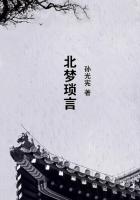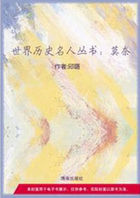The President replied that he must not be expected to quarrel with the New York Tribune before the right time; he hoped never to have to do it; he would not anticipate events. In respect to emancipation in Missouri, he said that what had been observed by Mr. Noell was probably true, but the operation of these natural causes had not prevented the irritating conduct to which he had referred, or destroyed the hopes of the Confederates that Missouri would at some time merge herself alongside of them, which, in his judgment, the passage of this resolution by Congress and its acceptance by Missouri would accomplish.
Mr. Crisfield, of Maryland, asked what would be the effect of the refusal of the State to accept this proposal, and he desired to know if the President looked to any policy beyond the acceptance or rejection of this scheme.
The President replied that he had no designs beyond the actions of the States on this particular subject. He should lament their refusal to accept it, but he had no designs beyond their refusal of it.
Mr. Menzies, of Kentucky, inquired if the President thought there was any power except in the States themselves to carry out his scheme of emancipation.
The President replied that he thought there could not be. He then went off into a course of remarks not qualifying the foregoing declaration nor material to be repeated to a just understanding of his meaning.
Mr. Crisfield said he did not think the people of Maryland looked upon slavery as a permanent institution; and he did not know that they would be very reluctant to give it up if provision was made to meet the loss and they could be rid of the race; but they did not like to be coerced into emancipation, either by the direct action of the government or by indirection, as through the emancipation of slaves in this District, or the confiscation of Southern property as now threatened; and he thought before they would consent to consider this proposition they would require to be informed on these points.
The President replied that, unless he was expelled by the act of God or the Confederate armies he should occupy that house for three years; and as long as he remained there Maryland had nothing to fear either for her institutions or her interests on the points referred to.
Mr. Crisfield immediately added: "Mr. President, if what you now say could be heard by the people of Maryland, they would consider your proposition with a much better feeling than I fear without it they will be inclined to do."
The President: "That [meaning a publication of what he said] will not do; it would force me into a quarrel before the proper time "; and, again intimating, as he had before done, that a quarrel with the "Greeley faction" was impending, he said he did not wish to encounter it before the proper time, nor at all if it could be avoided.
[The Greely faction wanted an immediate Emancipation Proclamation.
D.W.]
Governor Wickliffe, of Kentucky, then asked him respecting the constitutionality of his scheme.
The President replied: "As you may suppose, I have considered that; and the proposition now submitted does not encounter any constitutional difficulty. It proposes simply to co-operate with any State by giving such State pecuniary aid"; and he thought that the resolution, as proposed by him, would be considered rather as the expression of a sentiment than as involving any constitutional question.
Mr. Hall, of Missouri, thought that if this proposition was adopted at all it should be by the votes of the free States, and come as a proposition from them to the slave States, affording them an inducement to put aside this subject of discord; that it ought not to be expected that members representing slaveholding constituencies should declare at once, and in advance of any proposition to them, for the emancipation of slavery.
The President said he saw and felt the force of the objection; it was a fearful responsibility, and every gentleman must do as he thought best; that he did not know how this scheme was received by the members from the free States; some of them had spoken to him and received it kindly; but for the most part they were as reserved and chary as we had been, and he could not tell how they would vote. And in reply to some expression of Mr. Hall as to his own opinion regarding slavery, he said he did not pretend to disguise his anti- slavery feeling; that he thought it was wrong, and should continue to think so; but that was not the question we had to deal with now.
Slavery existed, and that, too, as well by the act of the North as of the South; and in any scheme to get rid of it the North as well as the South was morally bound to do its full and equal share. He thought the institution wrong and ought never to have existed; but yet he recognized the rights of property which had grown out of it, and would respect those rights as fully as similar rights in any other property; that property can exist and does legally exist. He thought such a law wrong, but the rights of property resulting must be respected; he would get rid of the odious law, not by violating the rights, but by encouraging the proposition and offering inducements to give it up.
Here the interview, so far as this subject is concerned, terminated by Mr. Crittenden's assuring the President that, whatever might be our final action, we all thought him solely moved by a high patriotism and sincere devotion to the happiness and glory of his country; and with that conviction we should consider respectfully the important suggestions he had made.
After some conversation on the current war news, we retired, and I immediately proceeded to my room and wrote out this paper.
J. W. CRISFIELD.
We were present at the interview described in the foregoing paper of Mr. Crisfield, and we certify that the substance of what passed on the occasion is in this paper faithfully and fully given.
J. W. MENZIES, J. J. CRITTENDEN, R. MALLORY.
March 10, 1862.
PRESIDENT'S SPECIAL WAR ORDER NO.3.
EXECUTIVE MANSION, WASHINGTON, March 11, 1862.















